Liberal Professor Violence Agains Twhite Men
Originally published on Medium.com/@UN_Women
From the disparate impacts of the COVID-19 crunch in communities around the earth to international protests against racism and discrimination, current events accept shown that we are far from achieving equality. Trying to interpret and battle a multitude of injustices correct now may experience overwhelming. How do nosotros accept on all these issues, and why should we? Intersectional feminism offers a lens through which we tin can amend understand one another and strive towards a more just futurity for all.
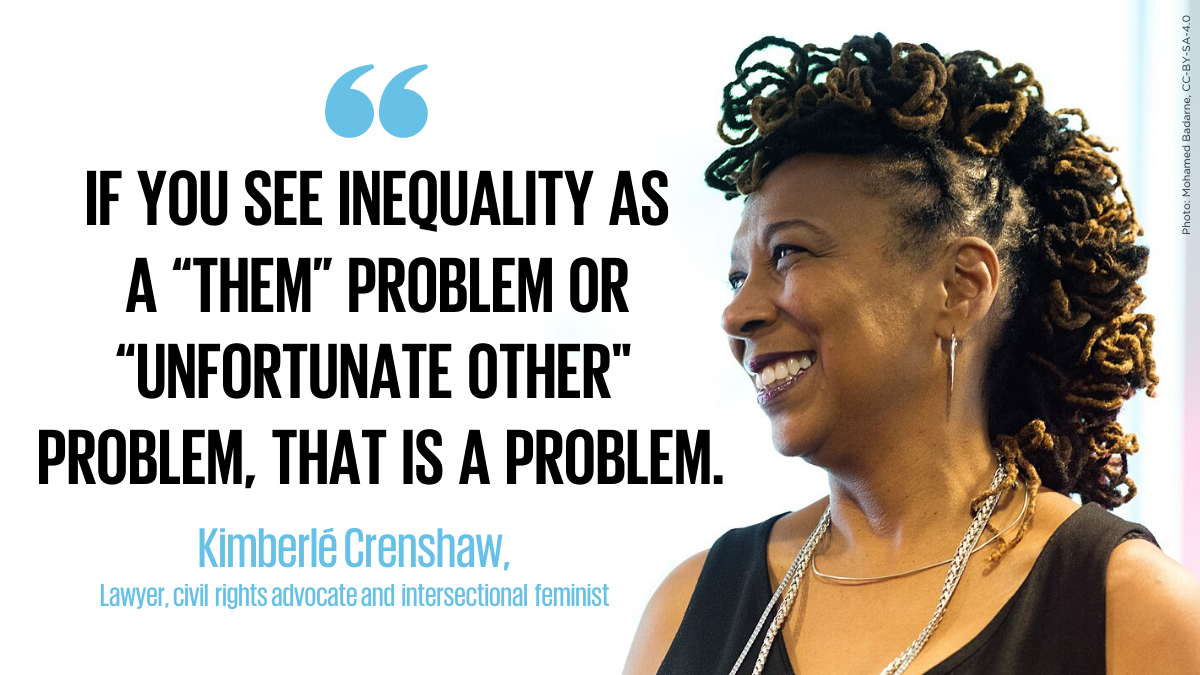
Kimberlé Crenshaw, an American law professor who coined the term in 1989 explained Intersectional feminism as, "a prism for seeing the way in which various forms of inequality often operate together and exacerbate each other," in a recent interview with Time.
"All inequality is non created equal," she says. An intersectional approach shows the way that people's social identities can overlap, creating compounding experiences of discrimination.
"We tend to talk near race inequality as carve up from inequality based on gender, class, sexuality or immigrant condition. What's frequently missing is how some people are subject to all of these, and the experience is not but the sum of its parts," Crenshaw said.
Intersectional feminism centres the voices of those experiencing overlapping, concurrent forms of oppression in society to empathise the depths of the inequalities and the relationships among them in any given context.
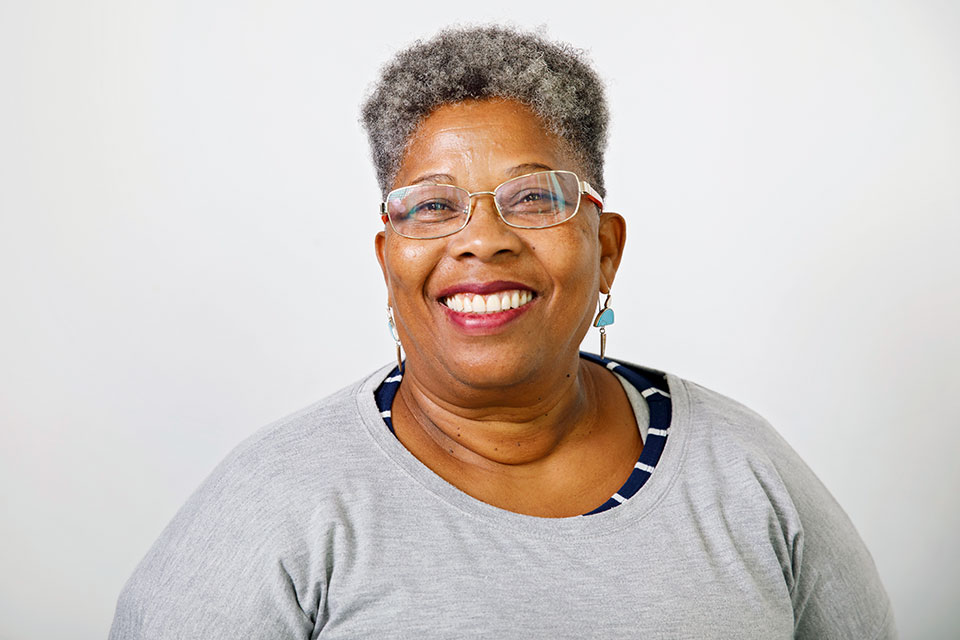
Valdecir Nascimento. Photo: Un Women/Ryan Brown
In Brazil, Valdecir Nascimento, a prominent women'south rights activist, says that, "The dialogue to advance black women's rights should put them in the centre." For 40 years, Nascimento has been fighting for equal rights, "Black women from Brazil accept never stopped fighting," she says, noting that black women were part of the feminist movement, the black movement, and other progressive movements. "We don't want others to speak for black feminists—neither white feminists nor black men. It's necessary for young black women to take on this fight. We are the solution in Brazil, not the problem," she says.
Using an intersectional lens also means recognizing the historical contexts surrounding an issue. Long histories of violence and systematic discrimination have created deep inequities that disadvantage some from the offset. These inequalities intersect with each other, for example, poverty, caste systems, racism and sexism, denying people their rights and equal opportunities. The impacts extend beyond generations.
Sonia Maribel Sontay Herrera is an indigenous woman and human rights defender from Guatemala where systematic discrimination confronting ethnic women has gone on for decades. Herrera has felt the consequences of these historical injustices since she was a girl.
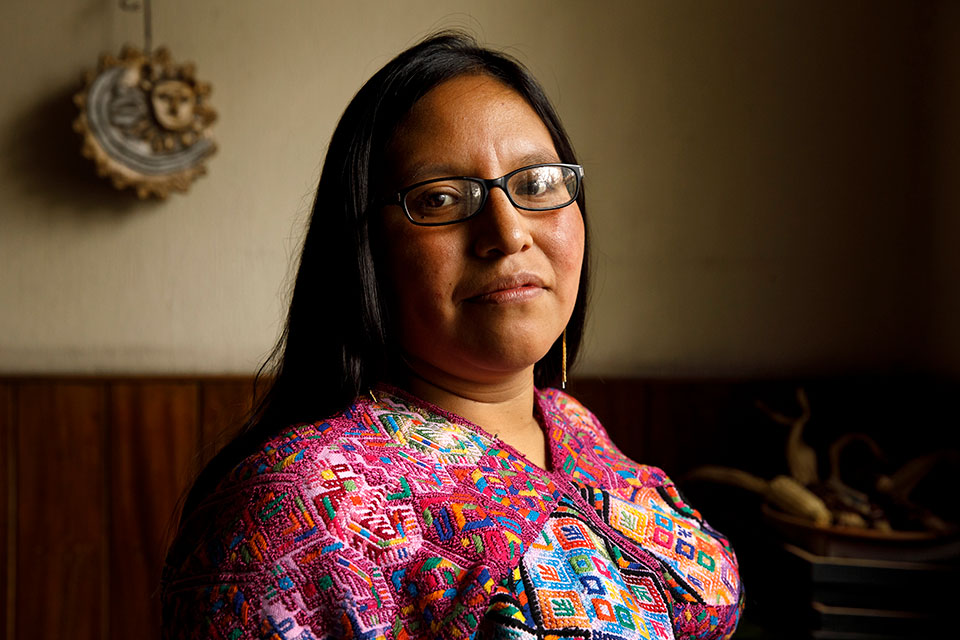
Sonia Maribel Sontay Herrera. Photo: UN Women/Ryan Chocolate-brown
At 10 years sometime, she moved to a city to attend school, an opportunity most ethnic girls don't get, she says. Yet, Herrera was forced to abandon her native language, K'iche', and learn in Spanish, which she experienced as an unjust burden for an indigenous adult female, since it was the linguistic communication of the colonizer. After finishing her studies, as Herrera searched for professional piece of work, she immediately encountered racism and sexist stereotypes. Since she was an indigenous adult female, some said that they simply had work for her in the dwelling house.
"They see us every bit domestic workers; when they see an indigenous woman, they presume that'south all we tin can do," she explains, outlining the ways in which she experiences compounding forms of discrimination based on her identity.
"Those who are near impacted by gender-based violence, and by gender inequalities, are also the nearly impoverished and marginalized—black and brown women, ethnic women, women in rural areas, young girls, girls living with disabilities, trans youth and gender not-conforming youth," explains Majandra Rodriguez Acha, a youth leader and climate justice advocate from Lima, Peru. That marginalized communities are the near impacted by natural disasters and the devastating furnishings of climate change is non a mere coincidence, she stresses.
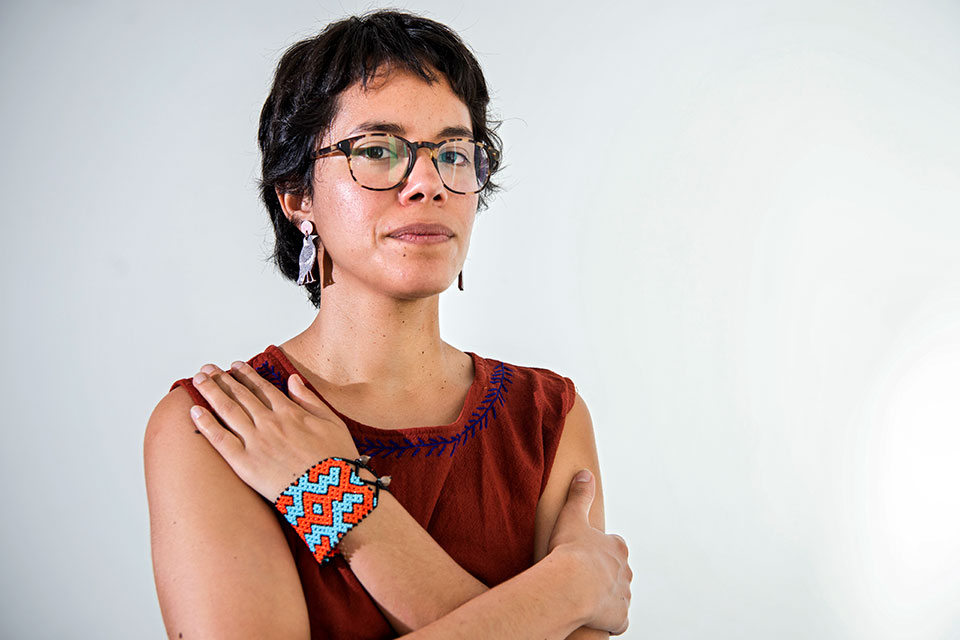
Caption Text
While bug ranging from discrimination based on gender identity to disparate ecology burdens may seem separate at first, intersectional feminism illuminates the connections between all fights for justice and liberation. Information technology shows us that fighting for equality ways not only turning the tables on gender injustices, but rooting out all forms of oppression. Information technology serves as a framework through which to build inclusive, robust movements that piece of work to solve overlapping forms of discrimination, simultaneously.
As concurrent, ongoing crises unfold across the earth today, nosotros can use an intersectional feminist lens to understand their linkages and build back better.
Intersectional feminism matters today because:
The impacts of crises are not uniform.
Countries and communities around the world are facing multiple, compounding threats. While the sets of issues vary from place to place, they share the event of magnifying pre-existing needs such equally housing, food, educational activity, care, employment, and protection.
Yet crises responses often fail to protect the most vulnerable. "If you are invisible in everyday life, your needs will non exist thought of, let lonely addressed, in a crisis situation," says Matcha Phorn-In, a lesbian feminist human-rights defender from Thailand who works to address the unique needs of LGBTIQ+ people, many of whom are indigenous, in crunch settings.
In the context of the coronavirus pandemic, the challenges of the virus have exacerbated long continuing inequities and decades of discriminatory practices, leading to unequal trajectories.
Rather than fragmenting our fights, taking on lath the experiences and challenges faced by different groups has a unifying issue; we are better able to understand the issues at manus and, therefore, find solutions that work for all.
Injustices must non go unnamed or unchallenged.
Looking through an intersectional feminist lens, we see how different communities are battling various, interconnected bug, all at one time. Standing in solidarity with 1 another, questioning ability structures, and speaking out against the root causes of inequalities are critical actions for building a time to come that leaves no ane behind.
"If yous encounter inequality as a "them" problem or "unfortunate other" problem, that is a problem," says Crenshaw. "We've got to be open to looking at all of the ways our systems reproduce these inequalities, and that includes the privileges as well every bit the harms."
A new 'normal' must exist fair for all.
Because crises lay bare the structural inequalities that shape our lives, they are too moments of large resets – catalysts for rebuilding societies that offering justice and condom to everyone. They provide a chance to redefine 'normal' rather than return to concern as usual.
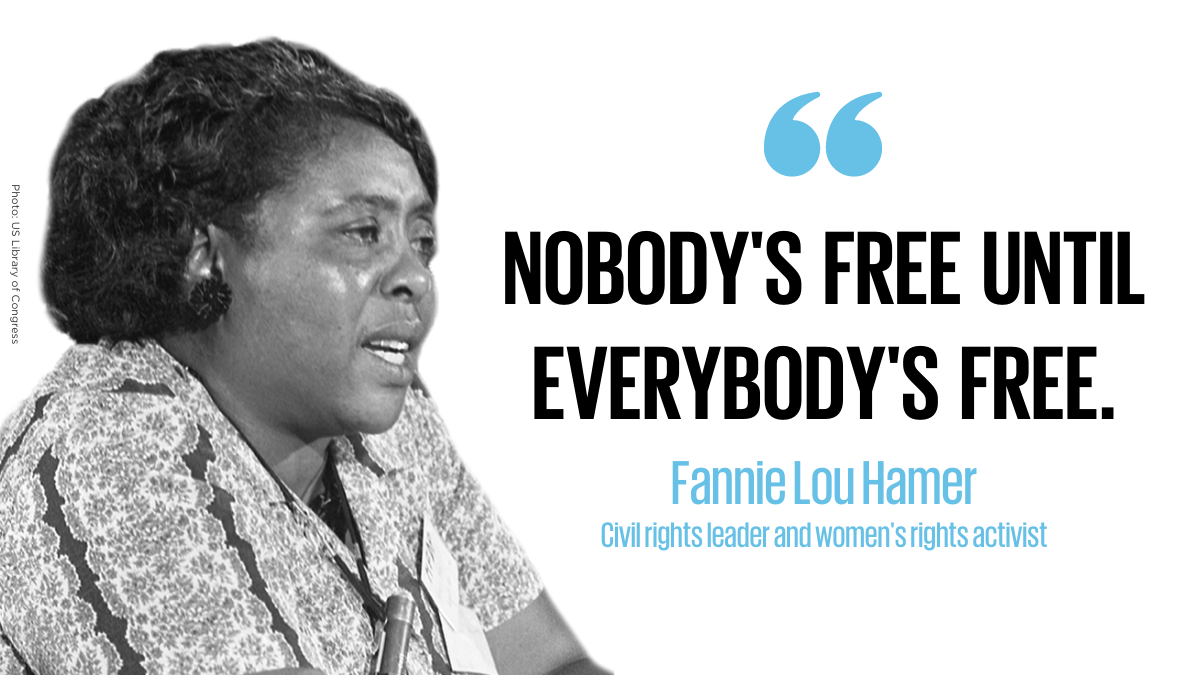
Caption Text
Taking an intersectional feminist approach to the crises of today helps us seize the opportunity to build dorsum meliorate, stronger, resilient, and equal societies.
"COVID-nineteen has presented u.s.a.... with a rare opportunity," says Silliniu Lina Chang, President of the Samoa Victim Back up Group, who has been advocating for improved services for victims of domestic violence during the pandemic. "[Information technology is] a fourth dimension for all of u.s. to reset. Think outside of our comfort zone and look across to the neighbour that is in need."
harrisonthationothe.blogspot.com
Source: https://www.unwomen.org/en/news/stories/2020/6/explainer-intersectional-feminism-what-it-means-and-why-it-matters
Post a Comment for "Liberal Professor Violence Agains Twhite Men"